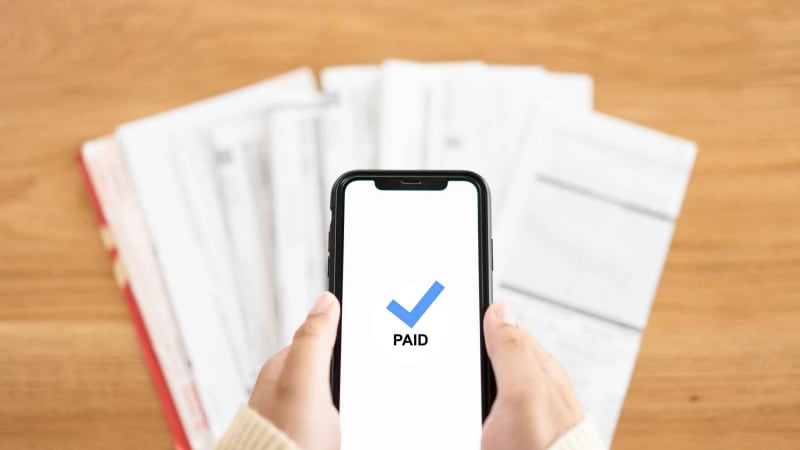Things to know about credit card minimum payments

When you go to pay your credit card bill, you may notice there’s a minimum payment amount listed on your statement. You may be tempted to pay that rather than your full balance. Before you do, you may want to make sure you understand what a credit card minimum payment is and how making the minimum payment could affect you in the long term.
What is a minimum payment on a credit card?
A minimum credit card payment is exactly what it sounds like — it's the minimum amount you can pay on your bill to remain in good standing with your issuer. If you pay this amount, you won’t have to pay a late fee, but you will accrue interest.
How to find your minimum payment
You will likely be able to find your minimum payment on your mailed billing statement or your digital billing statement through your credit card’s online banking system. If you have difficulty finding it in those two places, you can call your bank and ask.
How is credit card minimum payment calculated
Credit card minimum payments may be calculated differently depending on the issuer. Typically, minimum payments are either fixed amounts or a percentage of your balance, depending on what you owe.
If your balance is low compared to your credit limit, your minimum payment will likely be a fixed dollar amount. If your balance is lower than the fixed amount, then the minimum payment may be the entire balance.
If you have a higher balance, your minimum payment will likely be a small percentage of that. Some issuers set a flat percentage, which may vary between issuers, but is typically around 2%. Other issuers may have a lower flat percentage — 1%, for example.
What happens if I don’t make a minimum payment?
If you don’t make your minimum payments, you’ll likely be charged late fees, and could see an impact to your credit score. Eventually, after so many missed payments your account could possibly be reported as delinquent and closed by the issuer.
To avoid these outcomes, you may want to contact your bank as soon as you realize you won’t have the funds. Your issuer may have options you aren’t aware of until you call. For instance, they might work with you to make modified payments.
Can I pay more than a minimum payment?
Yes — you can pay more than your minimum payment as the higher your balance, the more you’ll accrue in interest. Paying off your full balance — or as much of it as you can — each month is usually the most beneficial scenario to help avoid paying interest on your remaining balance.
Does paying the minimum hurt my credit score?
No, paying the minimum on your credit card does not hurt your credit score. In fact, it ensures your card remains in good standing with your issuer and avoids late fees. However, as long as you’re carrying a balance, you’ll continue to accrue interest.
If you’re only making the minimum payment for a long period of time, that interest can add up and make it harder to pay off your balance. If this results in you eventually being unable to make a minimum payment, then that can likely hurt your score. Paying just the minimum in itself, however, will not negatively affect your score.
Credit card minimum payment FAQs
Why did my credit card minimum payment increase?
There are a couple of reasons why your credit card minimum payment may have increased. The first is simply carrying a higher balance. If your minimum payment is calculated based on a percentage of the balance, then a higher balance would mean a higher payment.
Incurring interest or late fees could also cause your minimum payment to increase if your issuer adds these costs into your minimum payment.
Can you pay less than the minimum payment on a credit card?
Technically, yes. You can likely make a payment that is less than the minimum payment. However, this will typically result in a late fee from your issuer, which will be added to your balance. If you still haven’t brought your account up to date within 30 days, it may lower your credit score .
How to lower minimum payment on a credit card
To lower your minimum payment, you could reduce your balance. You may do this in several ways, such as:
- Consistently making payments higher than the minimum payment.
- Making fewer purchases with your card while paying off the balance.
- Reworking your budget to lower overall spending and using extra funds for debt reduction.
In summary
If you’re carrying a balance, it’s important to try to make at least the minimum payment on a credit card. Not doing so may result in extra fees, potential harm to your credit score or your issuer closing your account. Paying your credit card minimum payment on time each month can ensure your account remains in good standing with your creditor, while paying more (whenever you can) might help you reduce the overall size of your minimum payments in future billing cycles.



